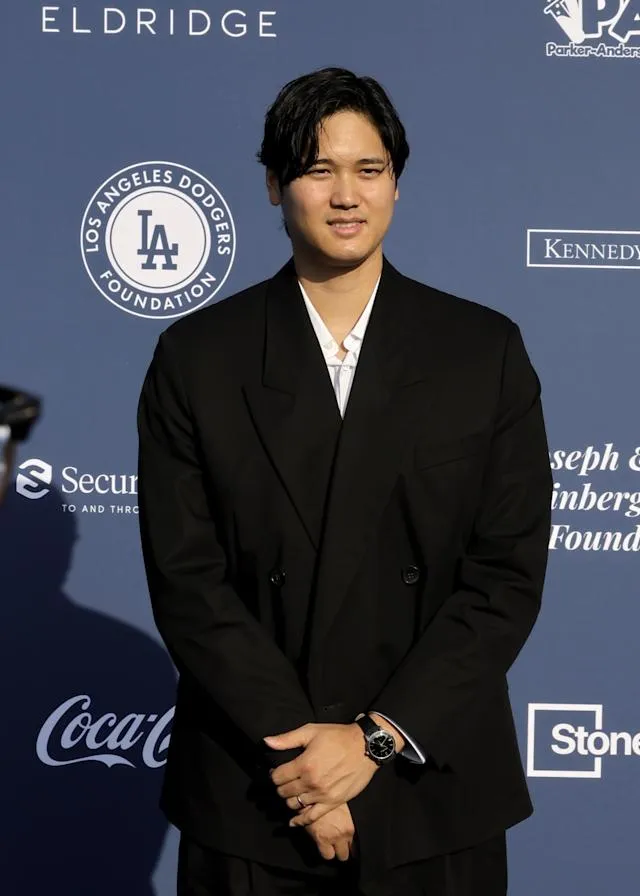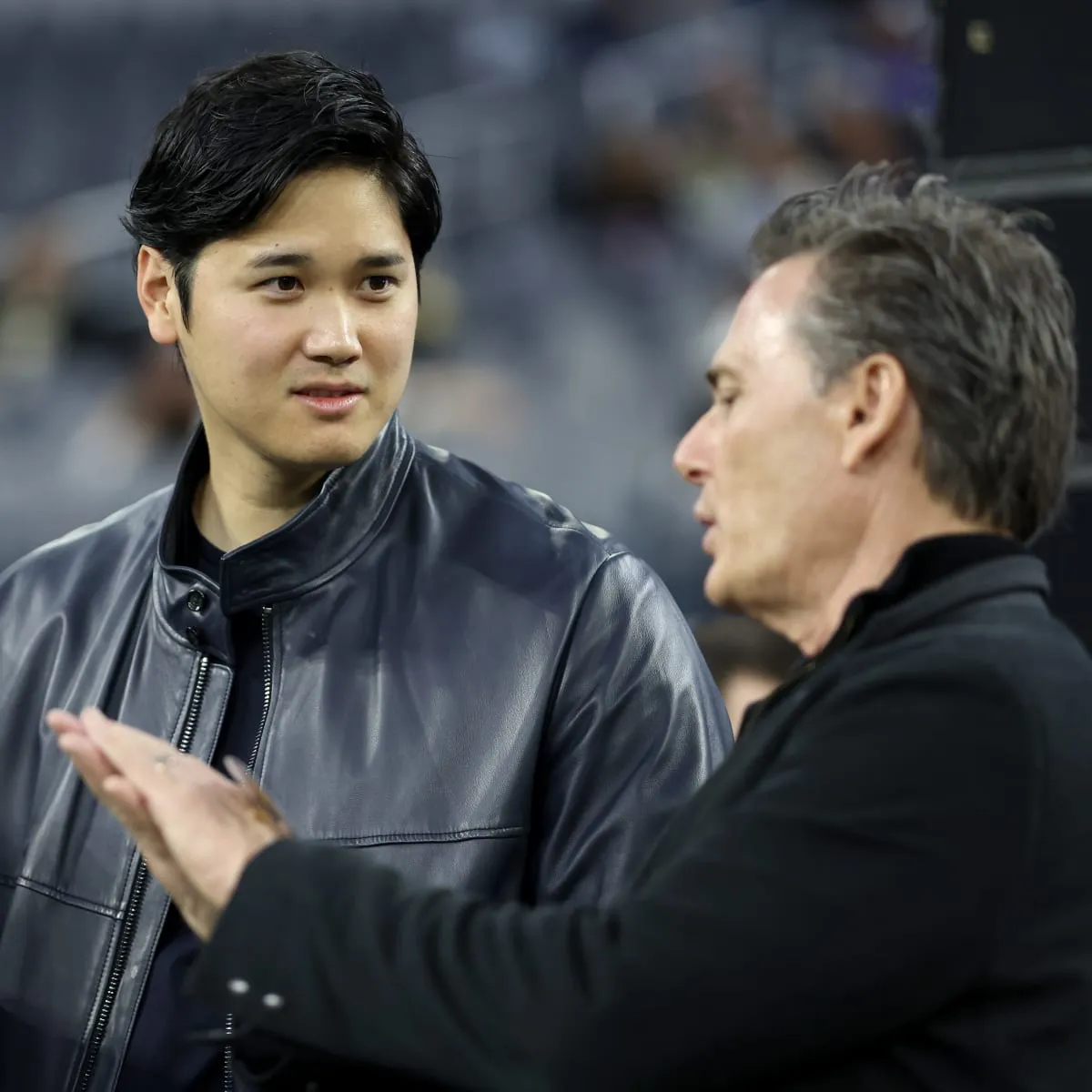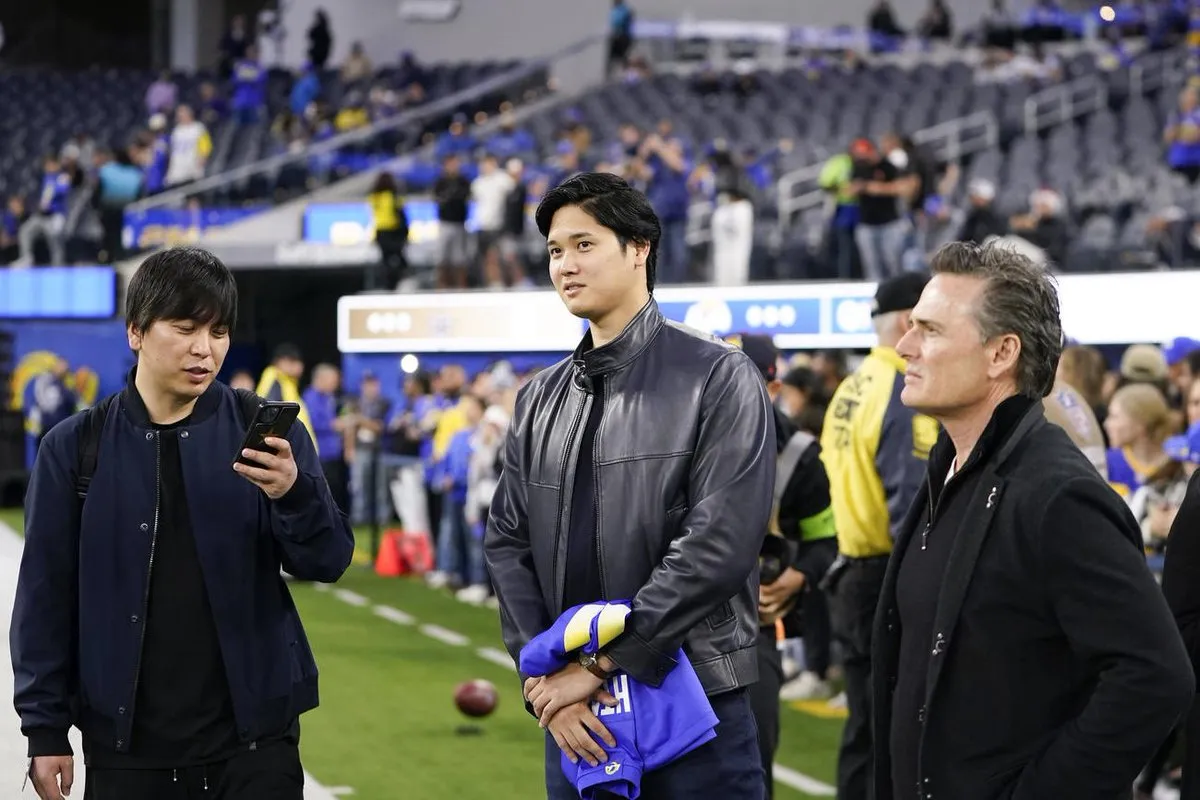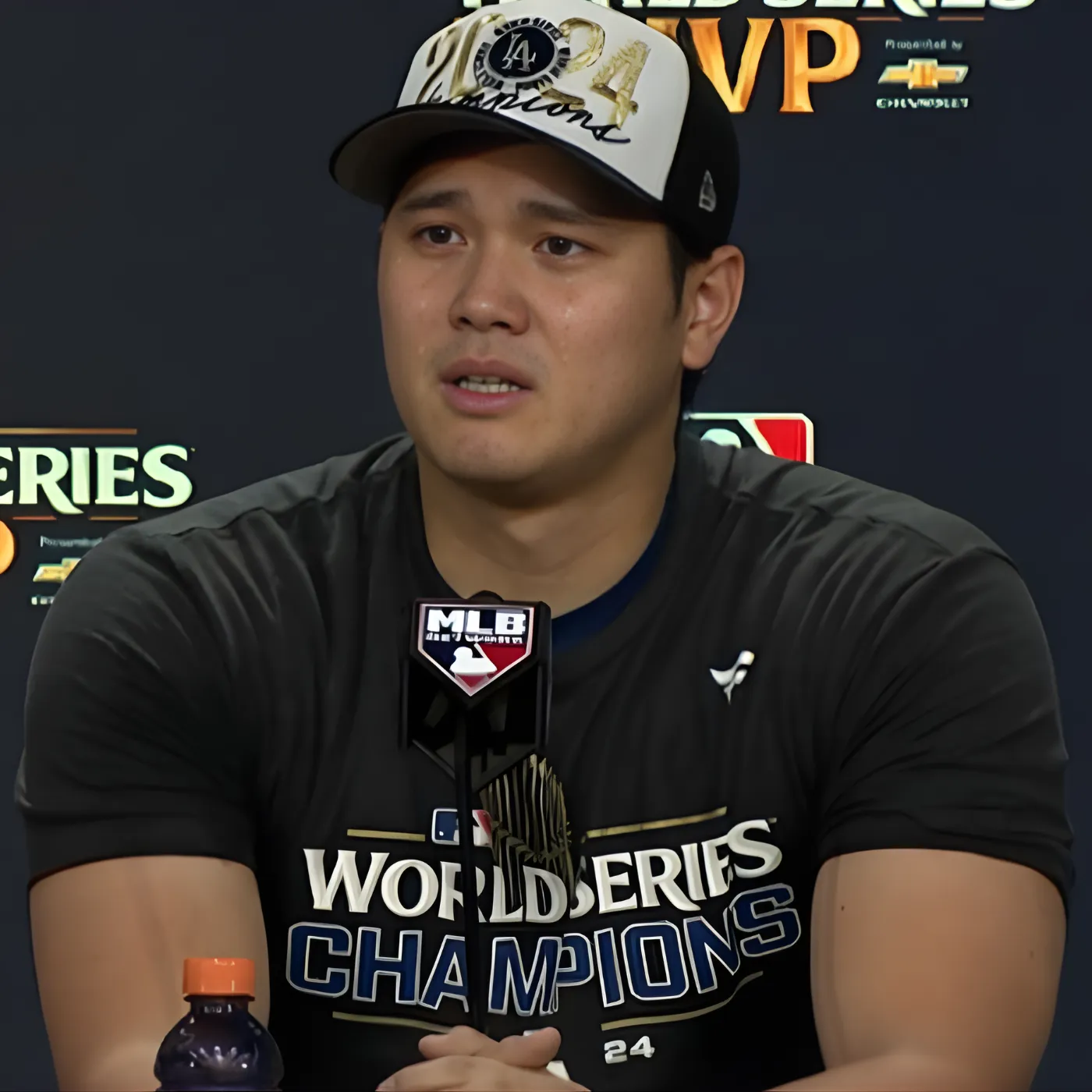

Shohei Ohtani Lawyers Push Back Saying He Was Targeted In Shocking Real Estate Scheme As They Seek To End Lawsuit
In the ever-evolving world of sports, fame often brings both celebration and scrutiny. For Shohei Ohtani, the global baseball superstar celebrated for his rare two-way abilities, the past year has not only been about highlight reels and MVP chants, but also about a headline-grabbing legal battle. Recently, Ohtani’s lawyers have stepped forward to push back against accusations surrounding a lawsuit, arguing that the Japanese phenom was unfairly targeted in a shocking real estate scheme. Their aim is to end the lawsuit once and for all, clearing his name of any suggestion of wrongdoing and ensuring his career continues without distraction.

This legal standoff has brought new layers of intrigue into Ohtani’s story, turning the world’s attention from his on-field dominance to the complicated off-field arena of law, finance, and reputation. To understand the gravity of what is unfolding, it is important to unpack not only the lawsuit itself but also the defense strategy his lawyers have adopted, and the larger implications for athletes navigating life at the crossroads of wealth and vulnerability.
The Lawsuit That Sparked Headlines
The controversy began when reports emerged linking Shohei Ohtani to a questionable real estate investment deal. Allegations suggested that Ohtani, through his representatives or financial advisors, was involved in property transactions that were later flagged as suspicious. The plaintiffs claimed that the investments were not only unsound but part of a scheme designed to defraud investors, with Ohtani’s name and celebrity status allegedly used to legitimize the operation.
For a figure as globally admired as Ohtani, such allegations were explosive. Media outlets quickly seized upon the story, framing it as a rare blemish on an otherwise spotless career. Fans accustomed to seeing Ohtani as a humble and disciplined athlete were left stunned by the possibility that he could be embroiled in legal trouble. Yet from the very beginning, Ohtani and his inner circle maintained that he was never an active participant in any fraudulent dealings, but rather an unsuspecting target of manipulation.
Lawyers Push Back: A Case of Targeting
As the lawsuit gained traction, Ohtani’s lawyers moved decisively to reframe the narrative. In legal filings and public statements, they argued that Ohtani had been deliberately targeted in a shocking real estate scheme orchestrated by opportunists who sought to exploit his fame and financial resources. According to their defense, Ohtani’s involvement was superficial at best, and his trust in advisors and intermediaries was weaponized against him.
The legal team emphasized that the lawsuit’s portrayal of Ohtani as complicit was not only misleading but damaging to his reputation and livelihood. Their objective has been clear: dismantle the accusations point by point, and demonstrate that Ohtani’s role was that of a victim, not a perpetrator. This strategy aligns with a broader truth in the sports world—athletes of Ohtani’s stature often become prime targets for financial predators, precisely because of their wealth, international recognition, and occasional lack of expertise in complex business dealings.
The Shocking Real Estate Scheme Explained
Central to the case is the alleged real estate scheme itself, which the lawsuit describes as a web of inflated property valuations, false promises of high returns, and pressure tactics to lure investors. Ohtani’s lawyers argue that his likeness and association were used as bait to convince other investors that the venture was legitimate. In this sense, Ohtani was not a co-conspirator but rather an unwitting pawn.
Evidence presented by the defense suggests that documents were crafted to appear as though Ohtani had more involvement than he truly did. In reality, he delegated financial matters to advisors he trusted while dedicating his energy to his baseball career. These advisors, according to the defense, failed to shield him from exploitation. It is a reminder of how professional athletes often walk a tightrope, balancing their singular athletic focus with the necessity of financial management in industries they may not fully understand.
Protecting Reputation on and off the Field
For Shohei Ohtani, the stakes of this lawsuit extend far beyond courtrooms and contracts. His public image is one of the most carefully cultivated in professional sports. Known for his humility, work ethic, and near-mythical two-way playing ability, Ohtani is more than just a baseball player—he is a cultural icon representing Japan, Major League Baseball, and international sports diplomacy.
Any suggestion of wrongdoing has the potential to erode trust with fans, sponsors, and teammates. That is why his lawyers have aggressively sought to end the lawsuit, rather than let it drag on and keep his name entangled with scandal. Sponsorship deals with global brands hinge on his reputation, and the courtroom battle is as much about restoring confidence in his character as it is about proving legal innocence.
The Broader Pattern: Athletes as Targets
What Ohtani is experiencing fits into a broader pattern where professional athletes become targets of financial schemes. From Ponzi operations to risky real estate ventures, history is full of examples where stars lost fortunes due to misplaced trust or predatory manipulation. Ohtani’s case resonates because it underscores how even the most disciplined and focused athletes can fall victim to external forces.
Lawyers representing Ohtani have pointed out that his global fame makes him especially vulnerable. Unlike ordinary investors, his name carries weight. By attaching Ohtani to the scheme, perpetrators could amplify their credibility and attract unwitting participants. In this way, Ohtani’s celebrity was a double-edged sword: the very quality that makes him a marketing dream also made him a target for those seeking legitimacy.
A Legal Battle With International Dimensions
Another layer that makes this case unusual is its international dimension. Shohei Ohtani, born and raised in Japan, has become a household name in the United States and across Asia. His lawyers argue that this cross-cultural fame increases both the complexity and the stakes of the lawsuit. The story has been covered extensively in Japanese media, where Ohtani is a national hero. Any stain on his reputation could have ripple effects not only for his career in Major League Baseball but also for his symbolic role in Japan’s sports legacy.
By aggressively defending his innocence and labeling the lawsuit as an unfair targeting, Ohtani’s legal team is also appealing to public opinion. They recognize that this case is not just about legal verdicts—it is about shaping the narrative in the court of public perception, both in the United States and abroad.
Seeking to End the Lawsuit Once and for All
The ultimate goal of Ohtani’s legal team is straightforward: to end the lawsuit decisively. They have filed motions seeking dismissal, arguing that the claims lack merit and that continuing the case would serve no purpose other than to smear Ohtani’s name. Their filings emphasize that prolonging the legal battle would drain resources, distract Ohtani from his baseball responsibilities, and unfairly tether him to allegations that misrepresent his role.
By seeking resolution, Ohtani’s lawyers hope to allow him to move forward without the constant shadow of litigation. The defense has expressed confidence that once the facts are fully examined, the court will recognize Ohtani as a victim of a scheme rather than a willing participant.
Public Reaction and Media Scrutiny
The media has played a significant role in amplifying the lawsuit. Headlines about a “shocking real estate scheme” inevitably drew attention, regardless of the nuances. Social media added to the frenzy, with fans debating whether Ohtani could have possibly been involved. His lawyers have criticized this coverage, noting that premature speculation only deepens the damage.
Still, there is evidence that fans remain largely supportive of Ohtani. Many see him as a model athlete whose record of integrity outweighs sensational headlines. Sponsors, while cautious, have also expressed measured confidence, noting that until courts rule otherwise, Ohtani’s reputation as a positive ambassador for the sport remains intact.
What This Means for Ohtani’s Future
The outcome of this legal saga will undoubtedly shape Shohei Ohtani’s future. If the lawsuit is dismissed or resolved in his favor, he will likely emerge stronger, his reputation restored, and his focus once again on rewriting baseball history. If, however, the case lingers or produces further revelations, it could cast a long shadow over his achievements.
For now, Ohtani continues to balance the extraordinary demands of his career with the pressures of defending his name. His lawyers’ assertive pushback demonstrates a recognition that silence is not an option when reputation and legacy are on the line.
Conclusion: Fighting for More Than Just Legal Victory
The unfolding case of Shohei Ohtani versus the real estate scheme plaintiffs is about more than money or property—it is about narrative, reputation, and justice. By framing their client as a target rather than a culprit, Ohtani’s lawyers are not only defending him in court but also in the court of public opinion.
For fans and observers, this legal battle offers a reminder of the precarious line that separates sports stardom from vulnerability. As Ohtani seeks to put the matter behind him and end the lawsuit, the world watches closely, hoping that one of baseball’s brightest stars can continue to shine without the cloud of legal controversy.
At its core, this is a story about resilience—about how an athlete known for overcoming physical limits on the diamond must now overcome the more complex challenge of restoring his reputation in a world eager to question, scrutinize, and judge.
Related News


















